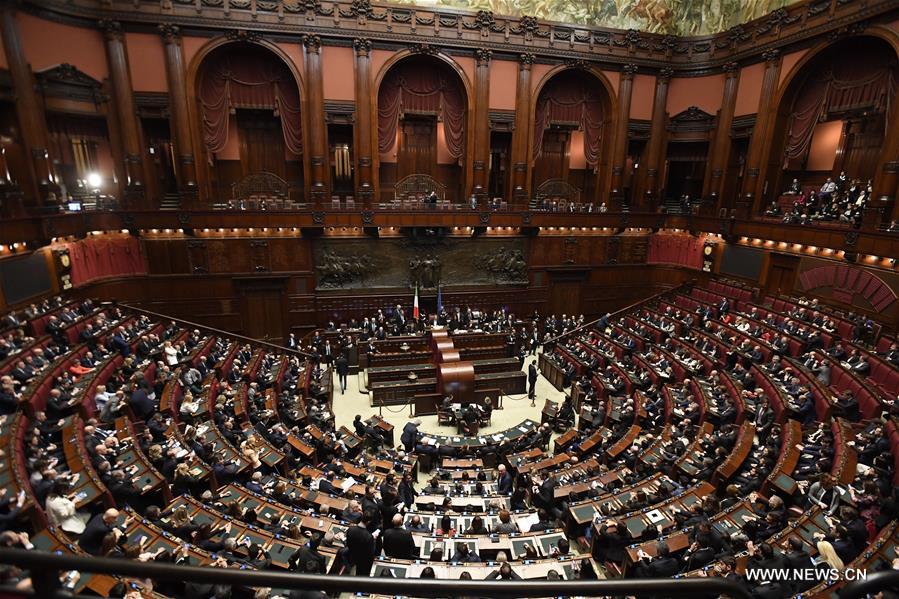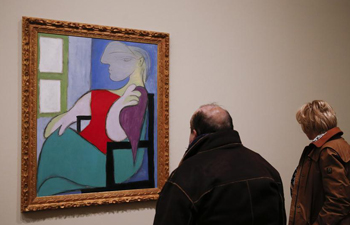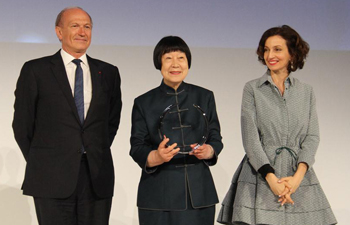
Lawmakers attend the election of Lower House speakers at the Lower House during the first session of parliament since the March 4 general election in Rome, Italy, on March 23, 2018. An agreement to form a coalition government remains so far elusive in Italy, as recently-elected lawmakers gathered for the first time on Friday. (Xinhua)
by Alessandra Cardone
ROME, March 23 (Xinhua) -- An agreement to form a coalition government remains so far elusive in Italy, as recently-elected lawmakers gathered for the first time on Friday.
The first meeting of the new parliament mirrored the strong divisions among parties, as it was somehow expected after the March 4 election delivered no clear majority.
Talks between the two relative winners of the election -- a center-right coalition led by anti-immigrant League, and the anti-establishment Five Star Movement (M5S) -- were in stalemate, and none of them can rule alone.
As a result, the initial voting sessions to choose the speakers of senate and lower house were fruitless, with most of the lawmakers casting blank ballots. The voting would continue through Saturday, when lesser majorities will be required.
This would make a solution technically easier, yet not really more likely, according to media analyses.
The speakers of the two houses do play a powerful role in Italy, having to mediate parliamentary debate and to oversee its rules throughout the whole legislature. Their election is also seen as a crucial passage, because it is followed by formal consultations among parties to form the government.
As such, most analysts agreed the deadlock over the speakers' choice was proof of the hard path lying ahead of those forces that -- according to the March 4 vote -- should be most entitled to rule.
"The League and the M5S now realize their victory (in the election) was relative, and that they have to face a reality in parliament that allows no forcing nor speedup," Massimo Franco with Il Corriere della Sera newspaper wrote.
"Allocating the parliament' highest roles only among themselves might have seemed the easiest and most natural thing for them to do at first, given the March 4 results. Yet, it is not so," Franco added.
"The legislature kicks off in the dark," Italy's business-daily Il Sole 24 Ore also stressed on Friday.
Indeed, all attempts to find a compromise among the relative winners have failed so far. Talks between the League and the Five Star Movement over the parliament's speakers collapsed this week.
The divide between them clearly emerged after the M5S' leader, Luigi Di Maio, refused to extend the dialogue to former Prime Minister Silvio Berlusconi and his center-right Forza Italia (FI) party.
Those who believed in a possible one-to-one deal between League and M5S were proved wrong, after the League's leader Matteo Salvini confirmed his allegiance to Berlusconi and the center-right coalition.
A third center-left block -- led by the Democratic Party (PD), which ruled in the last legislature -- was in a clear position of weakness, after a harsh defeat in the vote. Signals so far showed they would rather remain out of any deal, and sit on the opposition benches.
Therefore, some analysts said the chances of a coalition government would much depend on the two stronger figures of the moment -- League's Salvini and M5S' Di Maio -- and their "leadership skills", since their triumph was the real surprise of the election.
"The March 4 vote was a watershed in our country's political map," said Maurizio Molinari, editor-in-chief of La Stampa daily.
"This is going to force the winners -- namely, Salvini and Di Maio -- to test their leadership skills, and the first of these tests is indeed the election of the houses' speakers," he explained.















